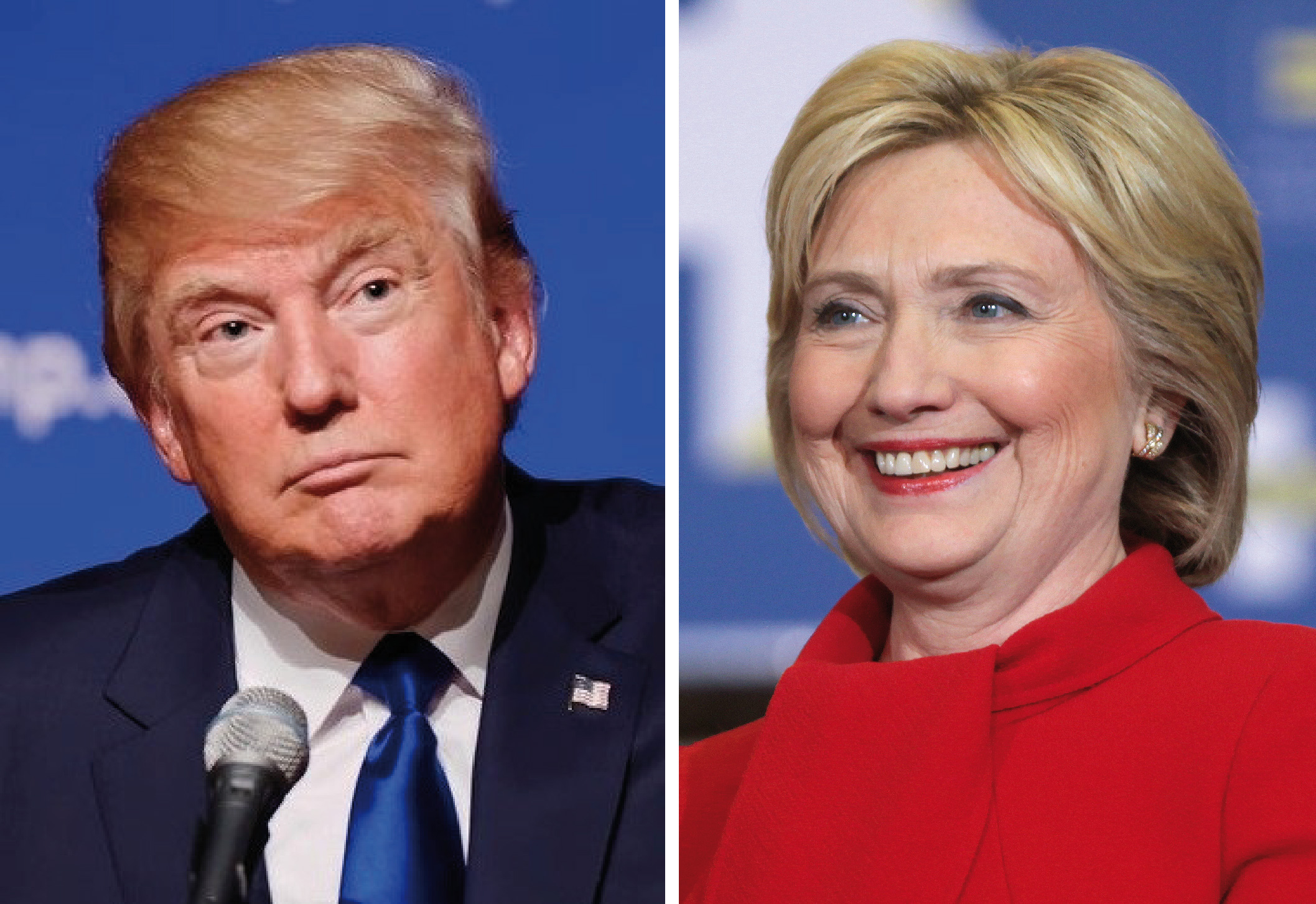Of the many ideas put forth by Republican presidential nominee Donald Trump, his musings on foreign policy may be the most alarming. He’s argued in favor of nuclear proliferation, said the U.S. should weaken its commitment to NATO and repeatedly praised Russian President Vladimir Putin. Many pundits agree that Trump’s foreign policy is illogical and dangerous, and their appraisal is clearly correct. However, Trump’s bloviation should not distract from the views of his principal opponent, Democratic nominee Hillary Clinton. Her policy proposals for Iran, Syria and Israel are dangerously hawkish — and hardly preferable to those of Trump.
As secretary of state, Clinton took a hard line with Iran. While the Middle Eastern nation advanced its nuclear program, she pushed for greater sanctions where President Barack Obama moved toward dialogue. Eventually, Obama and current Secretary of State John Kerry forged a deal with Iran, whereby the U.S. would relieve sanctions if the nation de-escalated its nuclear program. During her campaign, Clinton hailed the agreement as a significant diplomatic victory, but she hasn’t abandoned her strict tone. In October, as the U.S. began to implement the terms of the deal, Clinton argued the Obama administration should instead double down on its sanctions. She adopted a similar tone in June, when she warned that the U.S. would use military action against Iran if deemed necessary. The sanctions she proposed, like the ones that came before, will likely harm the country’s economy without fazing its government. Meanwhile, the hardline rhetoric, as former Iranian prisoner Shane Bauer explained, will only harden Iran further against the U.S. With a costly war as the probable alternative to the Iran deal, Clinton should focus on cautious diplomacy with the country; however, her attitude thus far may portend a more bellicose route.
Clinton has a similarly regressive approach to the Syrian civil war. American intervention in the bloody conflict has, to this point, been fairly ineffective — the U.S. has scrapped its program to train moderate rebels, while American-led airstrikes have killed numerous civilians — which is why the government, led by Kerry, has repeatedly attempted to negotiate a ceasefire. This option doesn’t satisfy Clinton. In October, she called for a no-fly zone in Syria, going against the Obama administration’s position. Not only would this strategy require tens of thousands of American troops and billions of dollars in funding, it could begin World War III: Russia, which has allied itself with Bashar al-Assad’s Syrian government, wouldn’t take a no-fly zone sitting down. Although diplomacy won’t bring an immediate end to the bloodshed, direct American involvement in this way would make conditions immeasurably worse for the country’s war-stricken citizens.
But Clinton’s true irrationality emerges only when dealing with Israel. From killing scores of Palestinian civilians and possibly committing war crimes during the 2014 Gaza conflict to relentlessly expanding its settlements in the West Bank despite international outcry, Israel hasn’t acted in a manner befitting an ally of the U.S. While Obama has occasionally criticized the nation’s actions, overall his administration has capitulated to Israel — he has unwaveringly supported them in the United Nations and continued to offer them obscene amounts of aid money. Yet Clinton feels he doesn’t go far enough. In a perspective that mirrors her actions as secretary of state, she wants to take the Israel-U.S. relationship to the “next level,” telling her donors that she’ll treat the nation more gently than Obama has. However, this sycophantic diplomacy she proposes would allow Israel to unabatedly abuse Palestinians, hurting its own security as well as America’s standing in the Middle East.
This is not to say that Trump has taken more logical positions on these issues. He heavily criticized the Iran deal and said he would try to renegotiate it. After claiming he’d take a neutral stance on the Israeli-Palestinian conflict, he backed off and veered to the right; likewise, he may renounce his (comparatively) lax approach to Syria as he approaches the general election. Still, saying that Clinton is better than Donald Trump on foreign policy sets a pretty low bar, one which she may not even wish to clear. Given her statements regarding these three nations, her prior attitude toward the Iraq war and her role in the Libyan regime change — as well as her connections to defense contractors and support from prominent neoconservatives — Americans would be foolish to expect a dovish Hillary Clinton administration.
Ryan Romano is a sophomore journalism major. He can be reached at tripler26@gmail.com.



